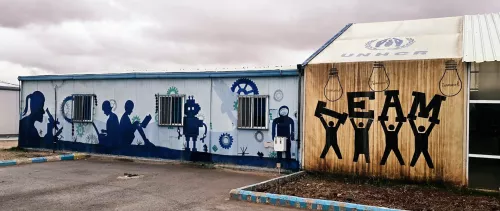
Image credit: D. Woldu via ITU
TU News recently connected with Ulisses Correia e Silva, Prime Minister of Cabo Verde, to learn how he is advancing digital transformation, connectivity and innovation not only at the national level, but also internationally.
A December 2020 ITU News article quoted you as saying: “Through the concept of digital democratization, we hope to make Internet access an essential right.” Tell us about some of Cabo Verde’s major and most recent digital transformations and ICT milestones.
Access to the Internet is very important for us. About 8 per cent of our population has access, which shows how Cabo Verde invests in the Internet and connectivity. We’ve got a lot of islands, with most of our population living abroad compared to the resident population.
We need to connect resident families with families abroad.
Most Cabo Verdeans abroad live in the United States, which is very important for the economy. The Internet is an essential good. To promote more use, we introduced some incentives with good pricing for users.
Have those efforts been successful?
It’s going very well, and not just [in terms of] the number of Internet users. The Internet is important for companies, for public administration, for citizens, for service delivery, for education, health, transportation, and tourism. All these sectors need a good digital system, linked to the Internet and to digital transformation.
EllaLink, a state-of-the-art optical platform offering secure, high-capacity connectivity and low latency to link major terrestrial and subsea hubs in Europe and Latin America runs through Cabo Verde.
You have also approved legislation that creates and regulates a new Special Economic Zone for Technology called ZEET in the Digital Islands Technological Park. What will be the major opportunities and challenges for digital transformation in your country over the rest of the current decade?
We need to be more resilient to diversify our economy beyond tourism. We need a digital economy, a blue economy. We need more intelligent agriculture and smart industry. And all these sectors need digital transformation and digital support.
We created a special economic technological zone to promote [digital transformation] and to attract investors. The zone has financial incentives to create opportunities to develop business. We have two technical parks: one in Praia, and another in São Vincente.
The data center in Praia and another backup in São Vincente position Cabo Verde as a digital economy hub in Africa and in the mid-Atlantic region.
It will transform Cabo Verde because we are small, and we need to be very efficient. We need connectivity not only between islands but with the rest of the world. This is a good opportunity to diversify the economy, to be more efficient, and to provide quality of service for citizens, companies and for all organizations that work in and with Cabo Verde.
It sounds like an open call for investment and for companies to come to Cabo Verde and set up shop in this “digital archipelago.”
Yes. To attract investors from the diaspora – because we have well-positioned Cabo Verdean companies in the United States and in European countries. To attract foreign investors, we look forward to seeing brands like Facebook or Google or others have the opportunity to do business in Cabo Verde. We have stability, good governance, a good location and we invest in telecommunication and Internet infrastructure. To be competitive, we need investors in Cabo Verde.
The ITU Plenipotentiary Conference, which is held every four years, is coming up this 26 September to 14 October, in Bucharest, Romania.
What are the key outcomes that you hope to see from this landmark conference? And how do you think that ITU should evolve to meet the needs of the digital age?
First of all, we want to participate by sending a delegation because we need to be present.
Second, for us [PP-22] is a key instrument to do good and foster transformation in digital and information and communication technologies (ICTs).
In Africa, we need to grow. Small Island Developing States (SIDS) have specific needs. We need to represent SIDS, and [promote] the need for special instruments for financing so these islands can develop faster.
To develop quickly, we need more investment in digital transformation and to transform some ideas that countries are rich because they have natural and mineral resources.
Natural mineral resources can help, but to transform countries we need to transform these resources into education, health and employment and well-being for the country, through innovation in technology. And for that, we need support for ICT development.
In Cabo Verde, we have a problem with the regularity of the rain. But for ICTs we don’t need rain: we need talent, telecommunication infrastructure, and stability to attract good investment. And of course, good connectivity.
This interview has been edited for clarity and length.
[embed]https://www.youtube.com/watch?v=5yDxbWBldf0[/embed]

